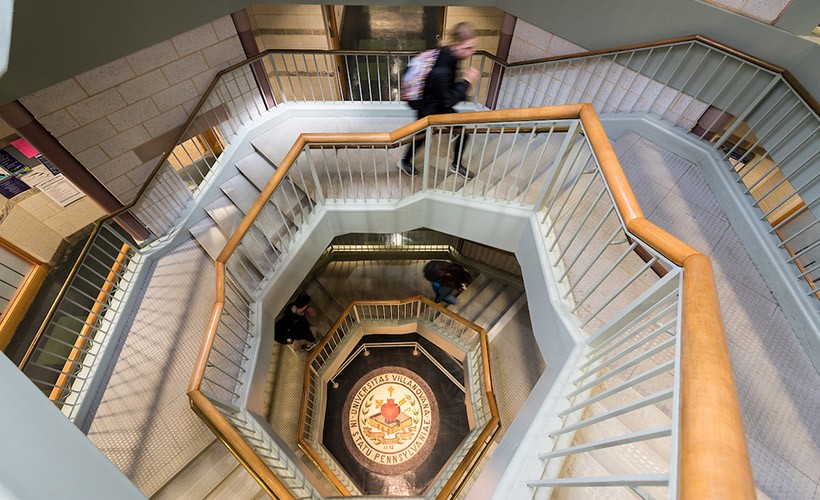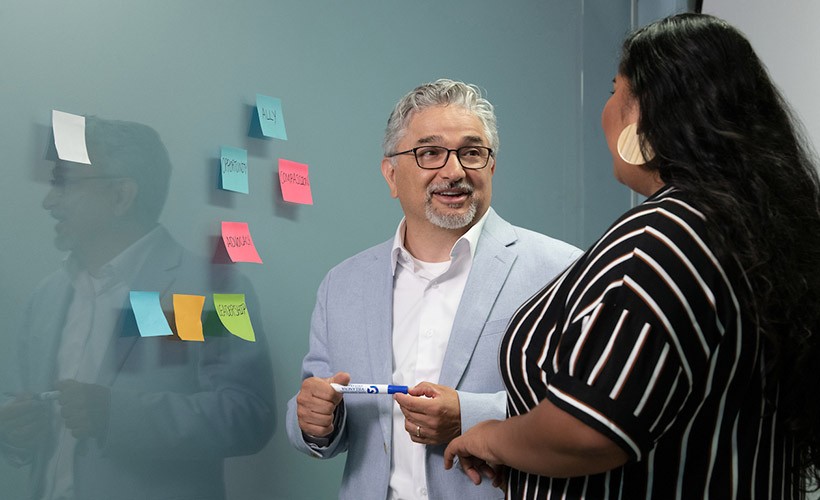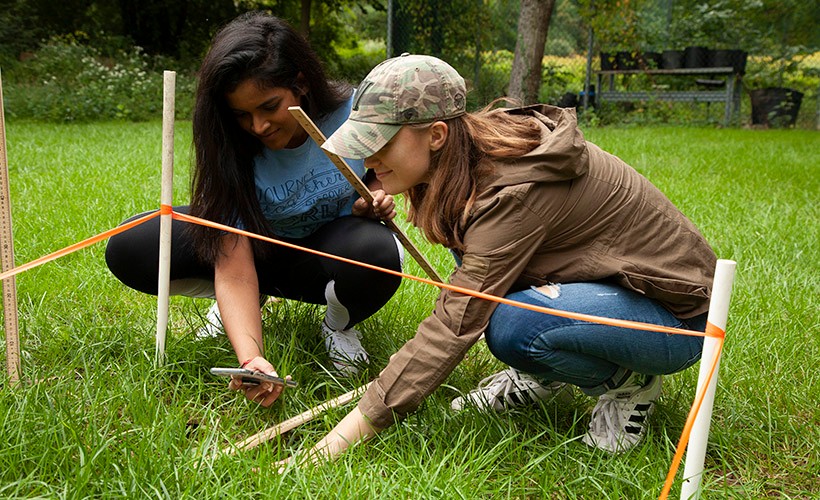ABOUT US
The Ethics Program advances critical examination of moral questions, welcoming a variety of perspectives, and fostering a community of inquiry aimed at a more just and peaceful world.
The Ethics Program at Villanova University's principal role is the administration of Ethics 2050: "The Good Life and Contemporary Moral Problems." In addition, the program oversees and administers a concentration and a minor in ethics.
The University believes issues of ethics and values are at the heart of every human endeavor. In addition to regular requirements in the sciences and humanities, the College of Liberal Arts and Sciences and the Villanova School of Business require each student to take a special interdisciplinary course—ETH 2050—typically in their sophomore year. This course serves to move students from gaining knowledge about the normative content of the traditions encountered at this Catholic, Augustinian University and engaging knowledge in the pursuit of wisdom and justice for the sake of a genuinely common good, mediated, in part, through voices that represent diversity in terms of race, ethnicity, gender, culture and geography. This course contributes to the implementation of Villanova's mission statement, which states that, as a Catholic institution, Villanova both emphasizes the values of the Jewish and Christian humanistic traditions and concerns itself with all value systems.
Insofar as ethics is a discipline that provides resources for critical reflection on normative claims involving the guidance of life and the nature of the human good, the goals of ETH 2050 are as follows:
- To advance understanding and critical reflection on the moral life as being especially concerned with human flourishing, i.e., with the nature of a good human life, the kind of life that is humanly worth living.
- To advance understanding and critical reflection on Christian and especially Roman Catholic, Augustinian accounts of a distinctive and viable vision of human flourishing that challenges and is challenged by alternative visions of the moral life in fundamental respects, with concern for the voices of minority and/or marginalized groups.
- To explore the significance of those different approaches to the moral life through the examination of various contemporary moral questions, with concern for the voices of minority and/or marginalized groups.
As an Augustinian Catholic university, we at Villanova believe that diversity of all kinds is at the heart of teaching and learning experiences. Whether student, staff, or faculty member, we know that to grow is to broaden perspectives and develop new insights on the world.
The faculty of the Ethics Program are committed to promoting UNITAS in support of the mission of both the University and the College of Liberal Arts and Sciences.
Addition information can be found at:
College of Liberal Arts and Sciences UNITAS: Inclusive Education
ETHICS PROGRAM ADVISORY COUNCIL
Jim Cavanaugh '70 CLAS, retired CPA
Stephen Esser, PhD, investment manager; retired professor of Philosophy, University of Pennsylvania
Barbara Laker, investigative reporter, Philadelphia Media Network
Kristen Rock, MD, '05 CLAS, anesthesiologist, Penn Medicine
Carl Rosin, teacher, Radnor Township School District
Wendy Ruderman, investigative reporter, Philadelphia Media Network
Louis Rulli, practice professor of law, University of Pennsylvania Law School
Megan Snow, Chief Data Officer, Association of College and University Educators
Emily K. Trancik, PhD, '09 CLAS, director of Ethics Integration, Ascension
Larry Udell, PhD, associate professor, West Chester University
Brett Wilmot, PhD, associate director, Ethics Program, Villanova University



